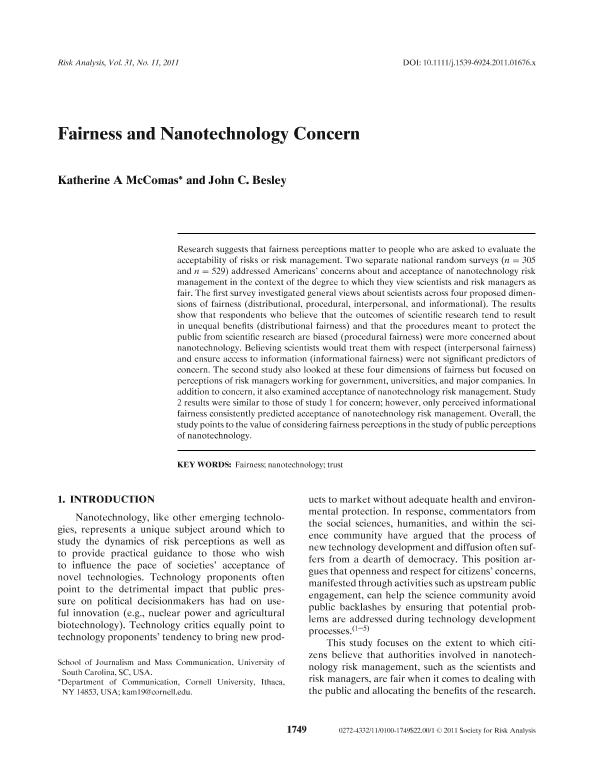management in the context of the degree to which they view scientists and risk managers as fair. The ?rst survey investigated general views about scientists across four proposed dimensions of fairness (distributional, procedural, interpersonal, and informational). The results show that respondents who believe that the outcomes of scienti?c research tend to result in unequal bene?ts (distributional fairness) and that the procedures meant to protect the public from scienti?c research are biased (procedural fairness) were more concerned about nanotechnology. Believing scientists would treat them with respect (interpersonal fairness) and ensure access to information (informational fairness) were not signi?cant predictors of concern. The second study also looked at these four dimensions of fairness but focused on perceptions of risk managers working for government, universities, and major companies. In addition to concern, it also examined acceptance of nanotechnology risk management. Study
2 results were similar to those of study 1 for concern; however, only perceived informational fairness consistently predicted acceptance of nanotechnology risk management. Overall, the study points to the value of considering fairness perceptions in the study of public perceptions
of nanotechnology.Related records: En: Risk analysis : an international journal. - McLean, Virginia : Society for Risk Analysis, 1987-2015 = ISSN 0272-4332. - 01/11/2011 Tomo 31 Número 11 - 2011 , p. 1749-1761Materia / lugar / evento: Nanotecnología Evolución científica Riesgo tecnológico Análisis de riesgos Gerencia de riesgos Justicia Other categories: 7


